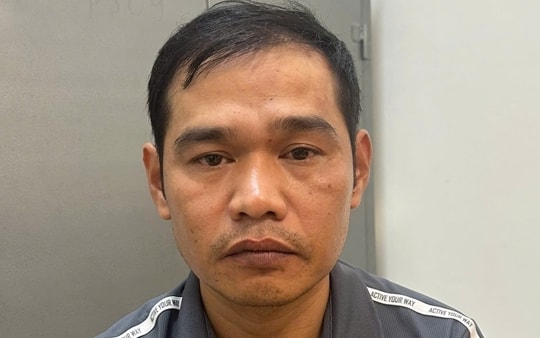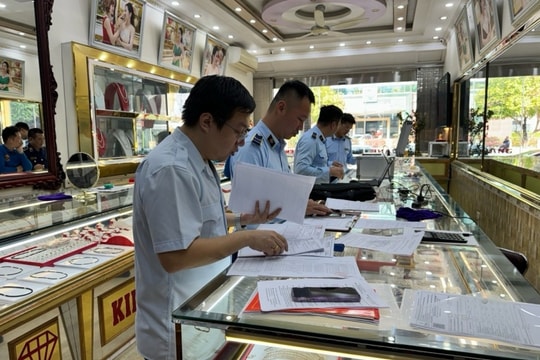The Ministry of Public Security warns of tricks of impersonating and pretending to be officials working in judicial agencies.
(Baonghean.vn) - On September 22, the Ministry of Public Security's electronic information portal issued a warning for organizations, individuals, and businesses to be vigilant when receiving phone calls from strangers claiming to be officers of judicial agencies, conducting criminal proceedings, to notify and request investigation of cases over the phone.
According to the warning ofMinistry of Public SecurityThe trick of impersonating and pretending to be officials working in judicial agencies, which criminals often use, has the following common characteristics::Using high technology, hiding under a phone number identical to the public phone number of the police or the People's Procuracy to call the victim, informing them that they are being sued for debt or are involved in a case or special project that the police are investigating and verifying, and have an arrest warrant from the People's Procuracy...

Woman in Nghe An almost lost 300 million VND after hearing a phone call
(Baonghean.vn) - Seeing his wife holding a savings book of 300 million VND leaving the house in a worried state, the husband promptly stopped her and his wife told him the whole story.
Thereby, the victims are required to declare their assets, current cash and deposits in bank accounts. Next, the subjects use threatening words to temporarily detain the victims for investigation and ask them to transfer money or read the OTP code so that they can transfer money to their accounts under the guise of verification and investigation.
 |
| The easy-to-recognize characteristics of phone scammers are: The subjects claim to be police officers, court officials, prosecutors, bank officials, post office officials, and ask the victims not to tell the story of "being investigated" or exchange information with anyone. (Ministry of Public Security's Information Portal) |
In addition, the Ministry of Public Security also pointed out another characteristic of scammers on the Internet that people can easily recognize, which is: The subjects ask the victim not to tell the story they just exchanged to anyone, the purpose is to prevent the victim from having enough time to check the information, not to report to the police. Although many victims have no hidden agenda, no wrongdoing, but the threats and urging of the subjects lead to anxiety and not being alert enough to recognize the fraud.
When the incident occurred, the victim did not know the subject's information, did not know why the money in the account was lost, or was afraid of losing reputation so did not report to the police, making it difficult for the investigation and handling.

Retired officer in Nghe An lost 120 million VND because he believed the detention order was sent via Zalo
(Baonghean.vn) - After being sent an arrest warrant for drug trafficking and money laundering, a retired official in Nghe An panicked and transferred 120 million VND from his savings book to "prove his innocence".
The Ministry of Public Security stated: When working, verifying, and investigating with individuals, organizations, and businesses, police agencies at all levels will have officers come to work directly or issue written notices.conveneSend to local authorities, company addresses, family members and people the police want to work with. Absolutely do not work via phone or social networks.
The Ministry of Public Security also recommends: Organizations, individuals and businesses need to be vigilant when receiving phone calls from strangers, claiming to be officials of state agencies and judicial agencies, conducting criminal proceedings, to notify and request investigation of cases by phone or impersonating bank, post office, insurance, inspection, customs staff... to request money, valuable postal gifts or to pay fees, repay unspecified debts.
 |
| When working, verifying, and investigating, police agencies at all levels will work directly or send written notices to the authorities, individuals, and organizations. They will absolutely not work via phone or social networks. (Ministry of Public Security Portal) |
When you receive messages via social networking sites asking to borrow money, buy phone cards, transfer money to verify accounts; ask for bank accounts to receive money from abroad... you need to be especially vigilant, absolutely do not follow; quickly contact or call to talk directly with that person to check the information.
At the same time, regularly change passwords or increase privacy protection features on social networking accounts; do not share too much personal information on social networking sites. Do not share bank account numbers on social networks; if you need a public bank account to make online transactions, the money in the public account should be kept at the lowest level to avoid being appropriated by criminals.
In the first 6 months of 2020, the police of 63 provinces and cities nationwide received 776 cases, with the amount of money scammed reaching thousands of billions of VND. In particular, the method of fraud by impersonating the police, the Procuracy, the Inspectorate, the Court, the Post Office... to appropriate property increased sharply, accounting for over 65% of the number of fraud cases to appropriate property on the internet.



.jpg)




